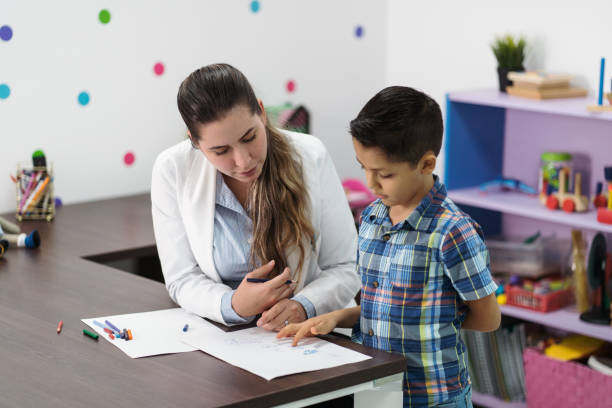Personalized teaching, also known as individualized instruction, refers to tailoring educational approaches and content to meet the unique needs, interests, and abilities of each student. This method of teaching has several benefits:
- Enhanced Learning Experience: Personalized teaching takes into account the learning style, strengths, and weaknesses of each student. By adapting instructional strategies, materials, and pace to suit individual students, it can create a more engaging and effective learning experience. Students are more likely to be motivated and actively involved in their education when it aligns with their specific needs.
- Addressing Diverse Learning Needs: In any classroom, students have diverse learning needs and abilities. Personalized teaching allows educators to identify and address these differences. Students who require additional support can receive focused attention and assistance, while those who grasp concepts quickly can be challenged with more advanced materials. This individualized approach helps ensure that all students can reach their full potential.
- Improved Academic Performance: When teaching is personalized, students tend to perform better academically. By tailoring instruction to their individual needs, they are more likely to understand and retain information. Personalized teaching allows educators to identify gaps in knowledge or areas where students may be struggling and provide targeted interventions, leading to improved learning outcomes.
- Increased Engagement and Motivation: When students feel that their unique interests, strengths, and goals are acknowledged and incorporated into their learning experience, they become more engaged and motivated. Personalized teaching can involve integrating real-world examples, student choice in assignments, and hands-on activities, fostering a sense of ownership and relevance in their education.
- Development of Self-directed Learning Skills: Personalized teaching encourages students to take an active role in their learning process. It promotes critical thinking, problem-solving, and independent learning skills. Students become more self-aware, understanding their learning preferences and setting goals for themselves. These skills are valuable not only for academic success but also for lifelong learning and personal development.
- Positive Student-Teacher Relationships: When teachers personalize instruction, they gain a deeper understanding of their students and build stronger relationships with them. By recognizing students as individuals with unique needs, teachers can establish a supportive and trusting environment. This connection can lead to open communication, increased confidence, and a greater willingness to seek help or ask questions.
- Inclusion and Equity: Personalized teaching can help address educational inequalities and promote inclusion. It acknowledges that students come from diverse backgrounds, with varying abilities, experiences, and cultural perspectives. By adapting instruction to meet their individual needs, personalized teaching supports equitable access to education and strives to close achievement gaps.
Overall, personalized teaching offers a range of benefits, including enhanced learning experiences, improved academic performance, increased student engagement, and the development of valuable skills. By recognizing and catering to the unique qualities of each student, educators can create a more effective and inclusive learning environment.
